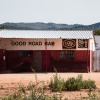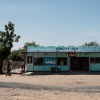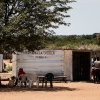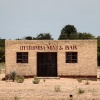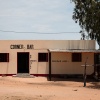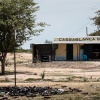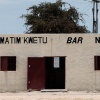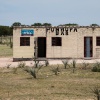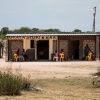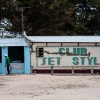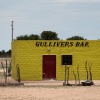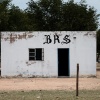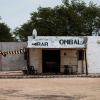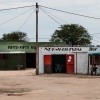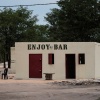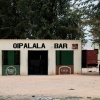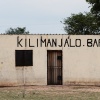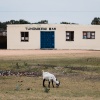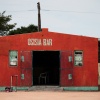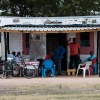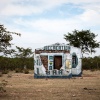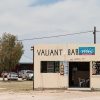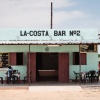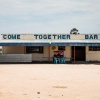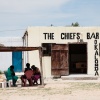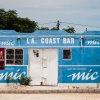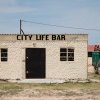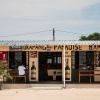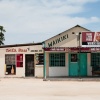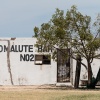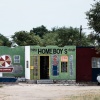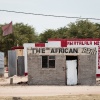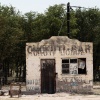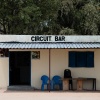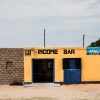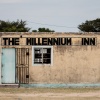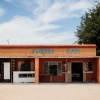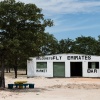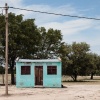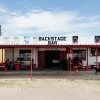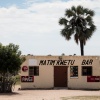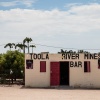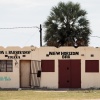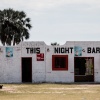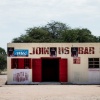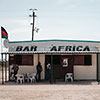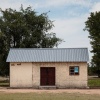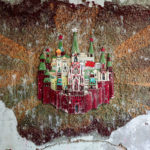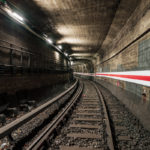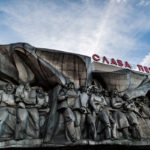Pub Crawl Namibia
In northern Namibia, between the giant Etosha salt pan and the border to Angola, countless bars and taverns shake hands along the roads connecting Oshakati, Oshikuku and Outapi. Most of them are a product of modern time, but some are a witness of a time period when former German South-West Africa struggled for independence as they served thousands of soldiers with booze and fun during South African Border War.
Jeez, that’s really confusing here… Everywhere are people on the road crossing my way busily, hectically, unexpectedly and the guy in front of me must have traded his brakes for the last drop of petrol making me being in nervous touch with my brake. Due to the maze of winding streets my navigation system already gave up and since signposting isn’t really what I call substantial. Perfect! That means driving by instinct, that means improvisation and increasing my awareness as the flow of people and the road condition tell you if you’re right or wrong. Hence potholes originating from too much traffic become a storyteller if you’re on the (correct) main road or not.
Having left behind potholes and the incredible hectic bustle of African people and their maze of corrugated-iron shacks, I notice various bars and pubs along the roads. Many of them have pretty funny names. Some of them are ruins, some other are open and working. On my way to the Epupa Falls I make a stop at many of those taverns to portrait them from an architecture point of view. At a few I even make a stop to have a beer, BUT only order a draught if you’re into fowl brewage that become subject to further fermentation and if you can stand having proper runs. Otherwise take bottled booze ;)
Even more confusing than the maze of Namibia’s regional capitals is Africa’s recent history and not few of the bars between Etosha Pan and Angola bear unique witness to that. No matter if SWAPO, UNITA, PLAN or the white soldiers of South Africa and no matter if Capitalism or Communism with an African tinge, all of them met in those bars were amusement in terms of booze and prostitution waited for all kinds of bands of soldiers.
I don’t want to lose myself in the historical as well as social turmoil of the African independence movement. For a photo series that is way too complex, it couldn’t find a comprehensive answer, but fortunately there is Peter Scholl-Latour and his thrilling book “Murder at the big River” – a gift in its true meaning from my best friend Peer – who explains not only the vicissitudes of the Congo Crisis but also has a look at other conflicts, like the South African, Namibian, Angolan tussle, from the angle of authentic-subjective narrations of a man who was always in the thick of things. Surprisingly it was Portugal that went down in history as the bloodiest of all African colonial powers with its interventions in Angola and Mozambique.
